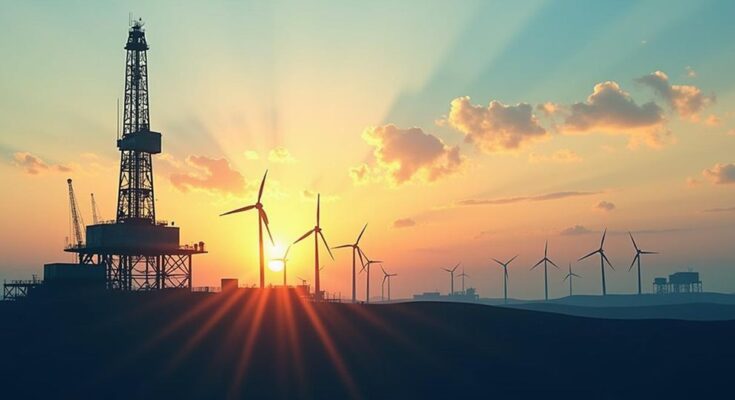Aliko Dangote, CEO of Dangote Refinery, highlighted the challenges of transitioning from fossil fuels to renewable energy, emphasizing that this process will take time. He stated that Africa needs to utilize natural gas and coal in the meantime due to pressing fuel shortages. Dangote also affirmed his company’s commitment to invest in renewable energy, asserting that Africa’s development must be led by Africans themselves.
During a discussion following the 79th United Nations General Assembly, Aliko Dangote, the Chief Executive Officer of Dangote Refinery, highlighted the complexities involved in transitioning from fossil fuels to renewable energy. He articulated that while a shift away from oil is essential, it requires considerable time and effort. Dangote pointed out that in the immediate context, particularly for Africa, solutions must encompass not only renewable energy but also natural gas and coal to address pressing energy and fuel shortages. He stated, “Transitioning doesn’t happen in one day. It will happen over a period of time. If we are going to move from where we are straight into renewable, we will die.” Contending with the reality that there are approximately 600 million individuals in Africa lacking access to electricity, he asserted the necessity of exploring both conventional and renewable energy avenues. In addition, Dangote reaffirmed his commitment to investing in renewable energy, asserting that his company is strategically poised to lead the charge in this sector. He stated, “We will definitely invest in the renewable energy… Nobody will develop Africa, but Africans. No matter what, we must lead before other people are going to get convinced to follow us.”
The discussion surrounding climate change and the transition to renewable energy is particularly critical for Africa, which contributes only about 4% to global greenhouse gas emissions yet faces significant adverse effects from climate phenomena. The African Development Bank has underscored the continent’s vulnerability, with challenges manifesting as food insecurity, ecosystem degradation, and conflict, exacerbated by climate impacts. Moreover, the World Meteorological Organization noted that approximately 110 million Africans were affected by climate-related issues in 2022, resulting in substantial economic losses. Recognizing these challenges, experts project that Africa’s adaptation costs could reach $50 billion annually by 2050, while it will require around $3 trillion in investments by 2030 to sufficiently mitigate climate risks.
In summary, Aliko Dangote’s remarks emphasize the dual approach necessary for Africa’s energy transition—balancing the immediate needs for conventional energy sources with the longer-term goal of renewable energy development. His advocacy for African leadership in development underscores the urgency for strategic investments and actions to address the continent’s energy deficits while preparing for sustainable growth.
Original Source: nairametrics.com




